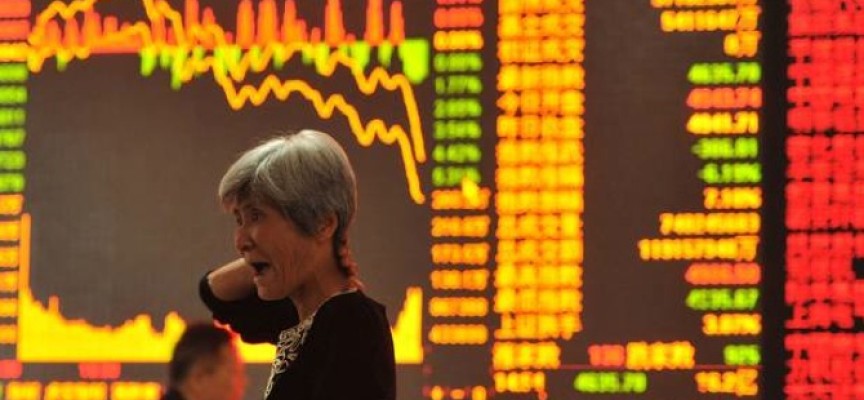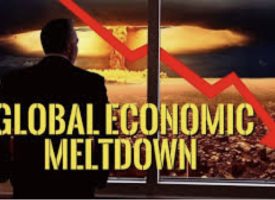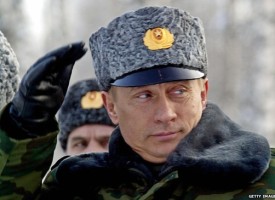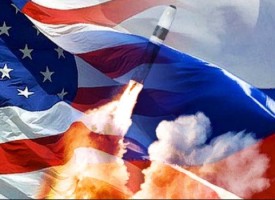Today one of the greats in the business sent King World News a fantastic piece that reveals the Economist has now joined the BIS, IMF and World Bank in warning the Fed as the Chinese stock market continues to tumble.
September 15 (King World News) – From Art Cashin’s notes: “Stay Thy Hand – The Economist has joined the BIS, the IMF, the World Bank and scores of others in calling on the Fed to delay the rate hike. In a prominent editorial they weigh the evidence on both sides of the issue. After laying out the “move now” arguments, they said:
Act in haste
Look closer, however, and this case is flawed. A looming rise in inflation is anything but certain. Although the unemployment rate is low, other labour-market measures suggest willing workers are waiting in the wings.
Labour-force participation among workers aged 25 to 54 has yet to recover from its recession swoon. Wage growth, at 2.2%, has scarcely risen in four years and remains well below levels reached during the previous three recoveries. That suggests firms can still draw on a reservoir of underemployed workers—which should keep a lid on wages and prices. The financial risks from ultra-low rates have been reduced by tougher regulation.
In addition, the Fed is moving to tighten just as the global economy is weakening. That is not just a concern to wobbly emerging markets, which fear that rising interest rates in America will prove a magnet for foreign capital. The dollar, up by nearly 20% over the past year on a trade-weighted basis, may float even higher, squeezing American exporters and dragging down inflation. Small wonder markets signal that they expect inflation to remain below 2% for the next few years.
On its own, therefore, the balance of probabilities argues against a rise. But the clinching argument against the hawks is that they ignore a fundamental asymmetry of risks. If the Fed waits too long to tighten, then inflation will rise above 2%. Were that to happen, the Fed has unlimited capacity to raise rates and could do so safe in the knowledge that it had pushed the American economy to its speed limit. If rates then had to rise steeply, the central bank would at least have more room to respond to future troubles by cutting again.
Raising rates too soon would be much costlier. A slowdown in growth could turn low inflation into deflation. To perk the economy back up, the Fed would have little option but to restart quantitative easing. That sort of backtracking is precisely the fate that has befallen other central banks which moved to tighten too swiftly (see article). Years of rock-bottom interest rates in Japan might have been avoided had the Bank of Japan been a little more patient in 2000, when it lifted rates in response to quickening growth (and higher stockmarkets) despite falling prices.
Low interest rates have risks. But premature rate increases can make them a near-permanent feature of economic life. For months Fed statements have declared that inflation will soon return to 2%. There is little harm in waiting to be sure.
Pretty comprehensive.
Overnight And Overseas – The BOJ stood pat. The Shanghai market fell 3.5% in a late selloff on light volume. While the volume was light, the selling was ugly with 14 stocks down for each one advancing. The Nikkei and Australian markets also fell but Korea eked out a small gain. European markets are mixed to little changed.
The yield on the ten year is a notch or two lower. Gold is a bit softer as is the Euro. Base metals are mixed to a shade lower, while crude is up a bit as are U.S. stock futures.
Consensus – The markets remain like a deer in the headlights of a possible Fed move. Form chart says another low volume sleepwalk with a hat tip to crude. Stay wary, alert and very, very nimble.” ***ALSO JUST RELEASED: Richard Russell – The U.S. Has A Ticking Time Bomb, Rigged Markets And A Desperate Fed CLICK HERE.
© 2015 by King World News®. All Rights Reserved. This material may not be published, broadcast, rewritten, or redistributed. However, linking directly to the articles is permitted and encouraged.







